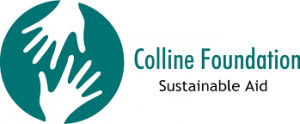For my practice Oral History Project, I chose to interview a friend of mine, Arielle, who is currently a sophomore studying biology at Xavier University in Louisiana. This past summer she participated in the Haiti International Clinical Apprenticeship Program by way of the Colline Foundation.
During the program, she had the opportunity to shadow Haitian physicians in order to observe the Haitian healthcare system firsthand. Although she didn’t do much volunteering, we can expect many of her experiences to be very similar to our experiences, especially for those on the Community Health team.
An interesting part about her experience was that she didn’t learn the context of her work and the history of Haiti until she got there, while we take this class at Dartmouth for an entire term before we depart. The program that she participated in mandated that participants of the program attend classes about the history of Haiti and the history of Haiti-US relations. So, it sounds like the students participating in that program were studying the same topics as we currently are, just about Haiti rather than Nicaragua. Students there also had a similar critique as many of the students in our class have had and grappled with, “My colleagues and I questioned whether NGOs were doing more harm than good because many of the NGOs that we witnessed weren’t using local resources.” This goes back to the topic of whether it’s a better idea to donate money and hire locals rather than to bring in volunteers.
In my time thus far thinking about the trip, I have been trying to think about how I can be the most useful and I figured it would be great to ask Arielle how useful she felt that she was. Although she felt useful during her learning experience, she added, “I could’ve been more useful if I spoke the language. I would have been able to personally connect with the people if my conversations weren’t so limited. I witnessed my Haitian-American friend who was fluent in Haitian Creole having a much easier time connecting with patients.
Similar to my final project, Arielle’s final research proposal for the program was centered around nutrition. She stated, “I observed that in outpatient care, pediatrics and orthopedics, many patients presented with preventative case that frequently included diabetes and hypertension. But, the culture is that people eat a lot of fatty foods that lead to these types of issues. I realized that the patients didn’t know that the food they were eating was causing the health issues they were experiencing. My colleagues and I developed a curriculum to teach kids about nutrition and healthy eating habits. The hope is to see that their health will not be compromised by malnutrition.” I thought this was very interesting because part of what we are hoping to do during our time in Nicaragua is to inquire about current nutritional habits and to see how nutrition can be improved in order to decrease the number of preventable health cases.
